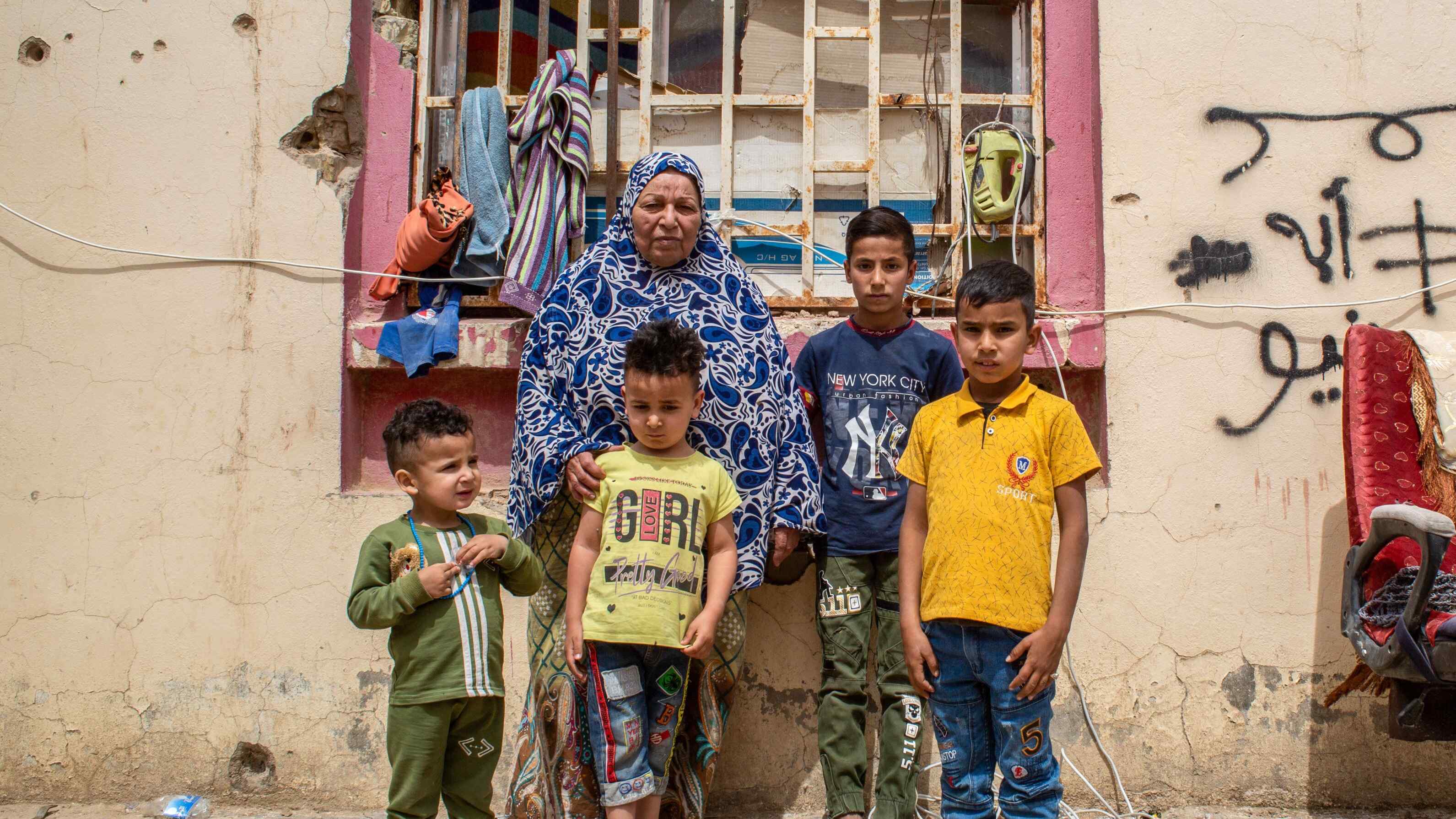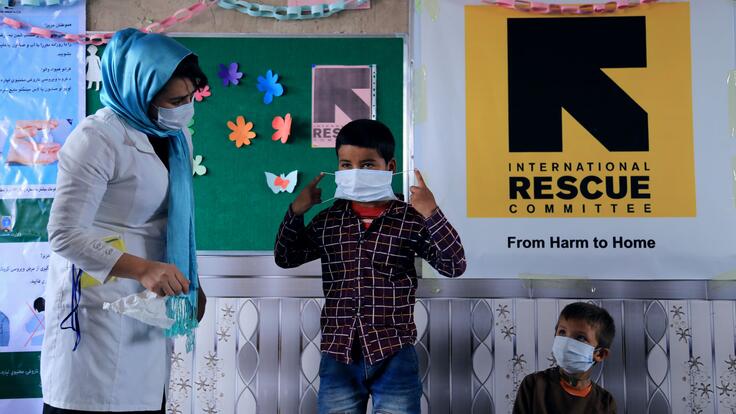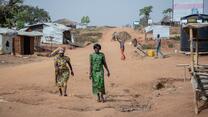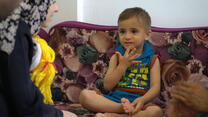Country facts
- Total population: 41.2 million
- People displaced by crisis: 1.2 million
- Rank in Human Development Index: 121 of 189
IRC response
- Started work in Iraq: 2003
- People assisted in 2022: 144,812
The IRC supports crisis-affected Iraqis to recover and rebuild their lives.
- Despite the end of active conflict in Iraq, nearly 5 million people who have returned to their homes continue to lack livelihood opportunities, proper shelter or access to basic services.
- Approximately 1.2 million Iraqis remain displaced and live in harsh conditions with limited access to education or employment.
- Hundreds of thousands of Iraqis lack crucial forms of identification needed to access and enjoy services such as education, nutrition assistance or housing support.
- Political instability has delayed budget allocations, reducing the ability of ministries to respond to the need of Iraqis, leading to sporadic violence in the country.
- Vulnerable groups, like women and children, need continued support as the humanitarian response in Iraq shifts towards prioritizing long-term development goals.
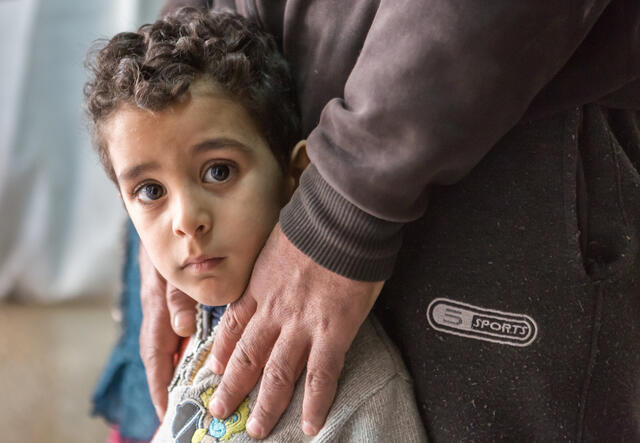
- Following the defeat of the ISIS group in 2017, the closure of camps housing internally displaced people left an estimated 1.2 million Iraqis without shelter. Many are unable to return to their homes due to a lack of safety and basic services. Now, they are forced to seek shelter in informal settlements or move to other parts of the country, far from their communities.
- A reduction in aid to Iraq, paired with the transition from a U.N-coordinated international humanitarian response to locally-led development, is making it more difficult to help communities rebuild and recover.
- Economic instability, the COVID-19 pandemic and years of conflict are affecting many Iraqis’ ability to meet their basic needs. High rates of poverty and unemployment exacerbate difficulties for families.
- Climate change is severely affecting the quality of Iraq’s air, water and soil, negatively impacting livelihoods, such as farming and animal herding, and is driving new waves of displacement.
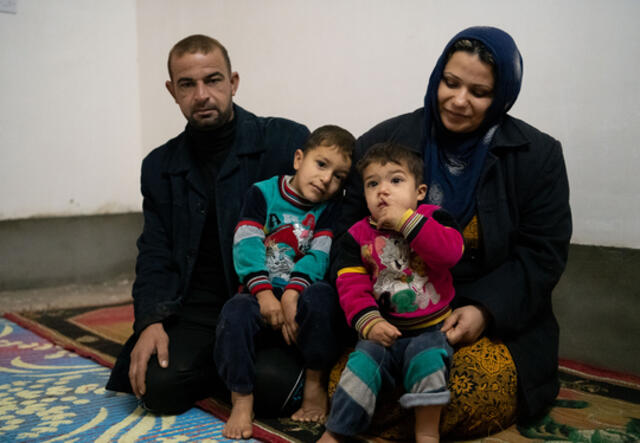
- The IRC’s mission is to help people whose lives and livelihoods are shattered by conflict and disaster, including the climate crisis, to survive, recover and gain control of their future.
- We first began working in Iraq in 2003, providing humanitarian relief and recovery assistance to the most vulnerable and crisis-affected Iraqis. The IRC now works in four Iraqi governorates—Anbar, Kirkuk, Ninewa and Salah al-Din—with offices in Erbil and Baghdad Governorates.
Specifically, the IRC:
- Provides conflict-affected children with access to sustainable, specialized, holistic and nurturing protective services. In 2022, our child and youth protection and development services supported 18,200 people.
- Supports children in the earliest phases of development through education, positive parenting and mental health wellbeing trainings. We also assist the professional development of Iraqi education and healthcare workers through workshops and trainings. The Ahlan Simsim program uses beloved Sesame Street characters to connect with children, teachers and caregivers across 15 governorates. In 2022, our early childhood development programming services reached 29,012 people.
- Helps people meet their basic needs and gain economic security through cash assistance as well as income generation and livelihood training activities which promote self-reliance and build resistance to economic shocks. In 2022, our economic recovery and development services reached 7,286 people.
- Works to ensure that communities recovering from conflict have sufficient and equitable access to services like the reconstruction of infrastructure or public spaces, like parks and schools, that were damaged in the conflict. In 2022, our work connecting citizens to government services and increasing civic engagement reached 276 people.
- Safeguards the human rights and well-being of those affected by conflict by monitoring their need for protection and reporting human rights violations. The IRC also provides cash assistance and legal awareness trainings and support. We tailor our responses to meet the unique needs of vulnerable groups such as internally displaced persons, minorities, women and people with disabilities. Our protection and rule of law services reached 61,572 people in 2022.
- Helps women and girls live free from violence and achieve equality in their communities. Our programs provide gender-based violence case management, safe spaces for women and girls, gender-based violence risk mitigation, counseling and other mental health support. In 2022 our women’s protection and empowerment programming supported 28,286 people.
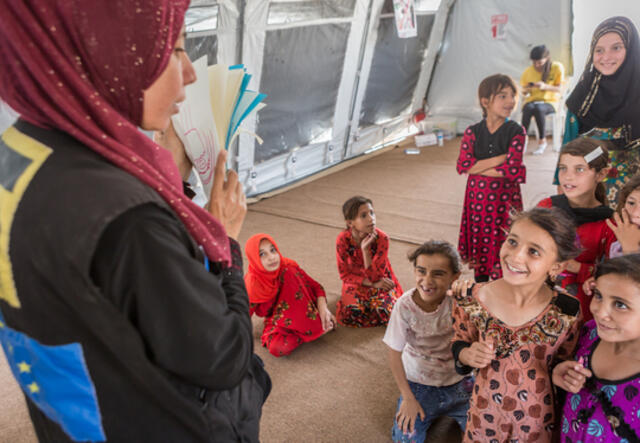
The IRC’s work in Iraq remains critical. Despite the end of active conflict in Iraq, humanitarian needs persist. Millions of Iraqis require humanitarian and longer-term development support to help them fully recover and rebuild their lives.
The IRC will continue to deliver tailored and integrated support to families and individuals affected by crisis in Iraq, while working with local and national partners to ensure sustainable and long-term impacts for those in need.
We will prioritize outcomes related to education, economic wellbeing, health, power and safety.
Download the IRC Iraq strategy action plan to learn more about our program priorities through 2024.
